
Why smaller companies are betting big on AI in procurement
Lean procurement teams are outpacing enterprises with faster AI adoption.

When I think about my early days in procurement, I remember being a team of one with everyone still expecting everything from me. Everyone was expecting fast onboard, low risk, strategic thinking, all at once. Yesterday, if possible.
Being strategic when you’re just trying to keep the wheels on, unfortunately, seems nearly impossible. This is why smaller companies are moving faster than enterprises on AI adoption in procurement. It’s not because they’re necessarily more innovative or tech-savvy, but because they don’t have the luxury of taking their time.
Our recent State of Spend report confirms what I’ve seen firsthand, that commercial and mid-sized companies are using AI as a lever to gain an edge over incumbents, while larger enterprises risk being outpaced due to their slower, more deliberate approach.
But there’s more to this story than just speed.
Why lean procurement teams adopt AI faster
When you’re running procurement with limited headcount (and I’ve spent a lot of time in these trenches), consequences hit faster.
- Delay an onboarding for a marketing vendor, and your campaign slips.
- Miss a renewal, and you auto-renew into a tool you don’t need anymore.
- Gloss over something in a contract, and legal is now breathing down your neck.
Smaller companies live closer to the edge. There’s a fine line, and they live on that line because there are shorter runways, fewer buffers, and again, faster consequences if you’re not getting things done.
This urgency fundamentally changes how you look at AI in procurement. Whether it’s cycle time, risk assessment, or that first-pass review that agents can handle, commercial companies need solutions now to get leverage.
Why 'good enough' beats perfect in procurement AI adoption
One of the most valuable lessons I learned during my time at Miro came from my former-COO. He didn’t care about my framework being super elegant; what he cared about was that there wasn’t chaos.
“Just implement something,” he told me. “It doesn’t have to be perfect. We can iterate on it.”
This mindset is exactly why smaller companies are leading in AI adoption. According to our State of Spend data, 85% of smaller companies say they’re confident they’ll be successful leveraging AI.
This confidence arrives from necessity. When you’re flying the plane while building it, you get really good at making decisions quickly and course-correcting as you go.
In this type of lean environment there’s no evaluation committee, no bandwidth to examine everything. Oftentimes there isn't even alignment or cross-collaboration up front, not because people don’t want it but because procurement isn’t seen as important enough to warrant that investment.

How AI helps small procurement teams scale without adding headcount
If you’re the solo lone wolf procurement person in a small company, you are the inbox. You're responsible for contracts, for being a negotiation ninja, for keeping audit trails, for tracking renewal dates.
Nobody really cares where all this information lives, they just want to make sure there's a way to get it when they need it.
What you feel immediately is the drag. When renewal dates sneak up on you, or miss a SOC 2 requirement for an audit. You’re stuck being reactive to a PO that got buried somewhere until somebody panics.
What fast-growth companies are learning is that AI-powered tools can be the difference between treading water and being able to actually swim forward.
The playbook is simple: start with super repetitive friction.
If it hurts every week, find a way to automate it with a first pass. Things like intake routing, or highlighting variances in a SOC 2. Perhaps for you it’s contract metadata extraction, or PO change drafting.
The idea isn't that it has to be perfect, it just has to be less painful than the processes that are taking up your time for strategy.
AI automation frees procurement teams for strategic work
We’re all getting a bit tired of the AI hype, but in my experience working with Zip customers, it’s become apparent that these AI tools really are removing the noise so procurement has the bandwidth to be strategic.
I’ve seen so many times now, Zip AI agents handling document chasing, metadata parsing, logic routing, risk flagging, etc., the things that lead to burnout.
In fact, on a call I was on recently I heard someone use the phrase exactly: “burnout disguised as diligence.”
This is so much of what our manual work really is; all that stuff disguised as diligence when AI can just take care of it, so you don’t have to burn out, and can focus on the things that require actual human capacity.
The strategic part is the real fun part of the job. Solving tough issues, cross-collaboration, building relationships and trust. Even negotiating great deals if that’s your thing (it never really was mine!). All of this requires capacity, and capacity requires removing the parts that drain you.
Why mid-market companies are outpacing enterprises on procurement AI
More than half of the companies in our State of Spend survey have already launched AI-related projects in procurement and finance.
The edge that smaller companies have is that they’re adopting these tools without the bureaucracy that slows down larger organizations, things like AI committees, six-month evaluations. Just like my boss at Miro told me, they’re able to implement, iterate, and improve.
When you’re small and lean you can’t waste time, because everyone is counting on you to move fast, so they can move fast.
While enterprises deliberate, smaller companies are already automating their first-pass reviews, cleaning their data, and building the strategy to compete.
How to accelerate AI adoption in procurement
What we’re seeing, and what our State of Spend confirms, is that smaller companies are finding ways to outrun their competition.
Suddenly being small isn’t a disadvantage anymore, because they have permission to move fast, fail quickly, and iterate constantly in a way larger companies wish they could.
Tools like agentic procurement orchestration helps companies remove the friction that keeps talented people stuck in operational quicksand instead of doing the strategic work they were hired to do.
Want to see how companies of all sizes are approaching AI in procurement and finance? Download our complete State of Spend report and learn what 1,030 global leaders revealed about their priorities, challenges, and surprising confidence in AI transformation.

Maximize the ROI of your business spend

Enter your business email to keep reading





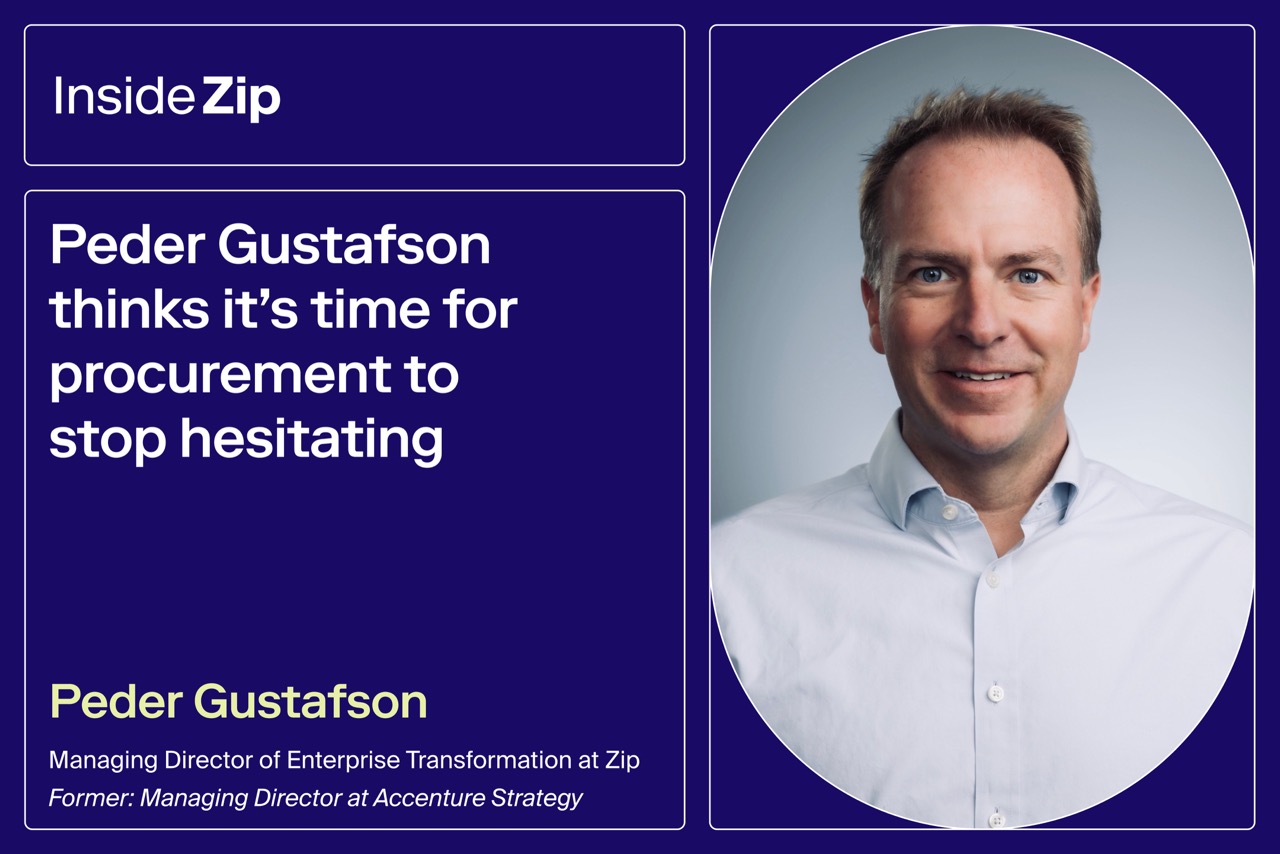
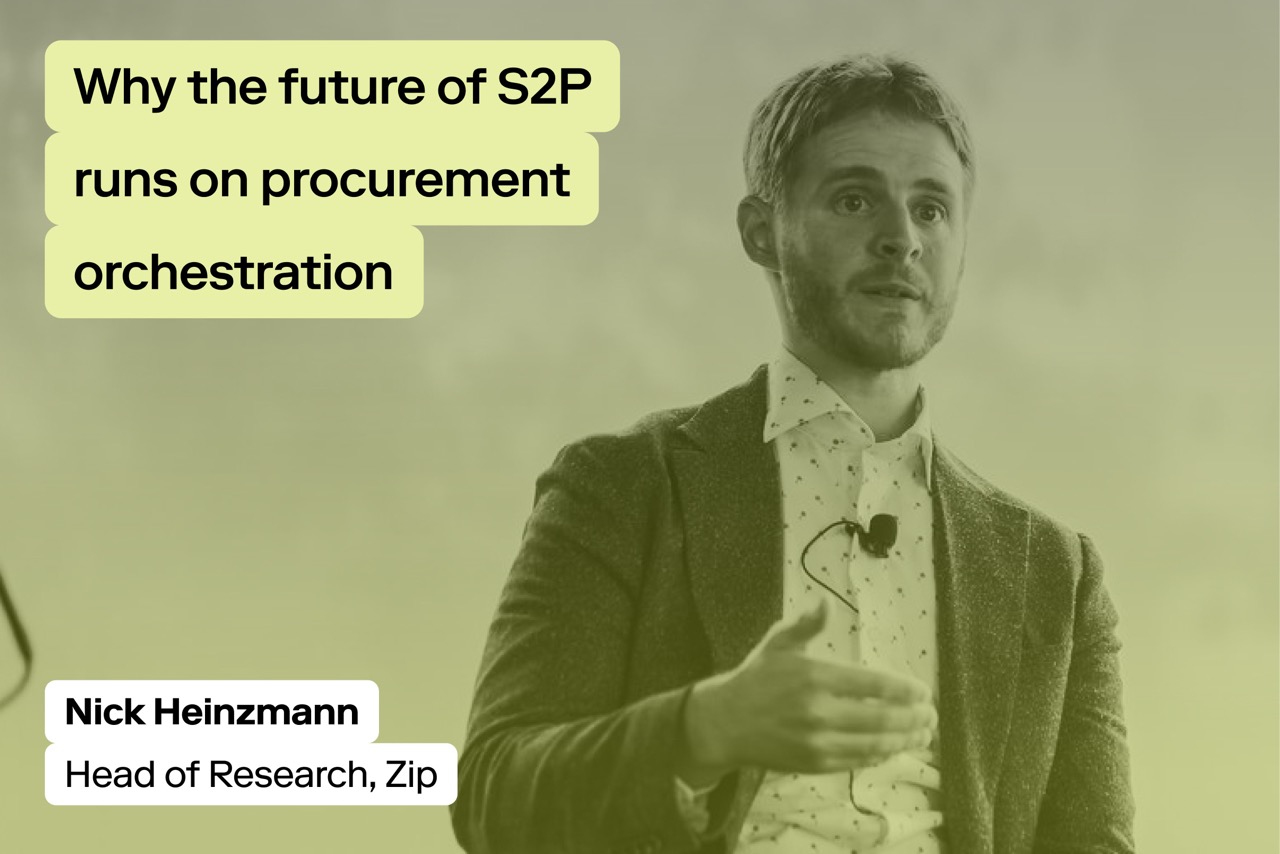


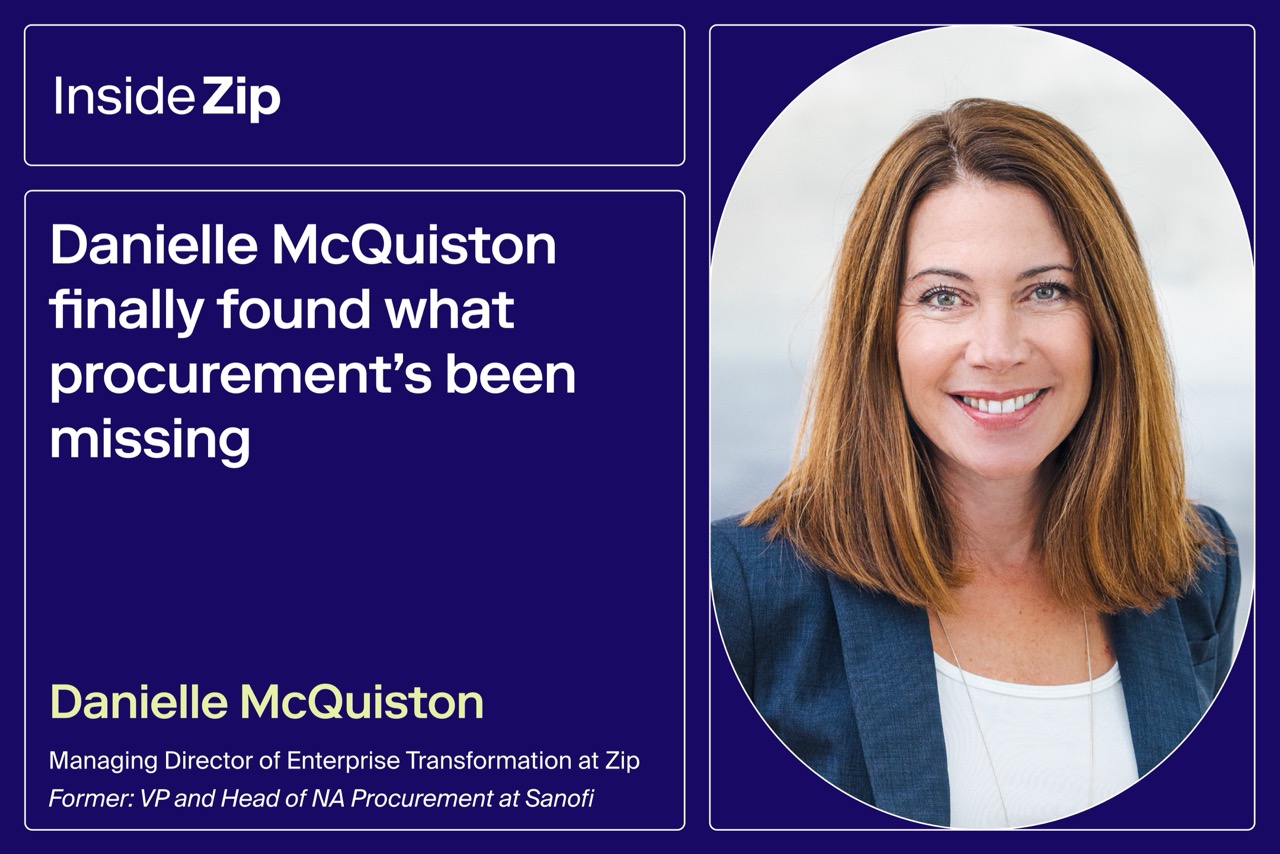


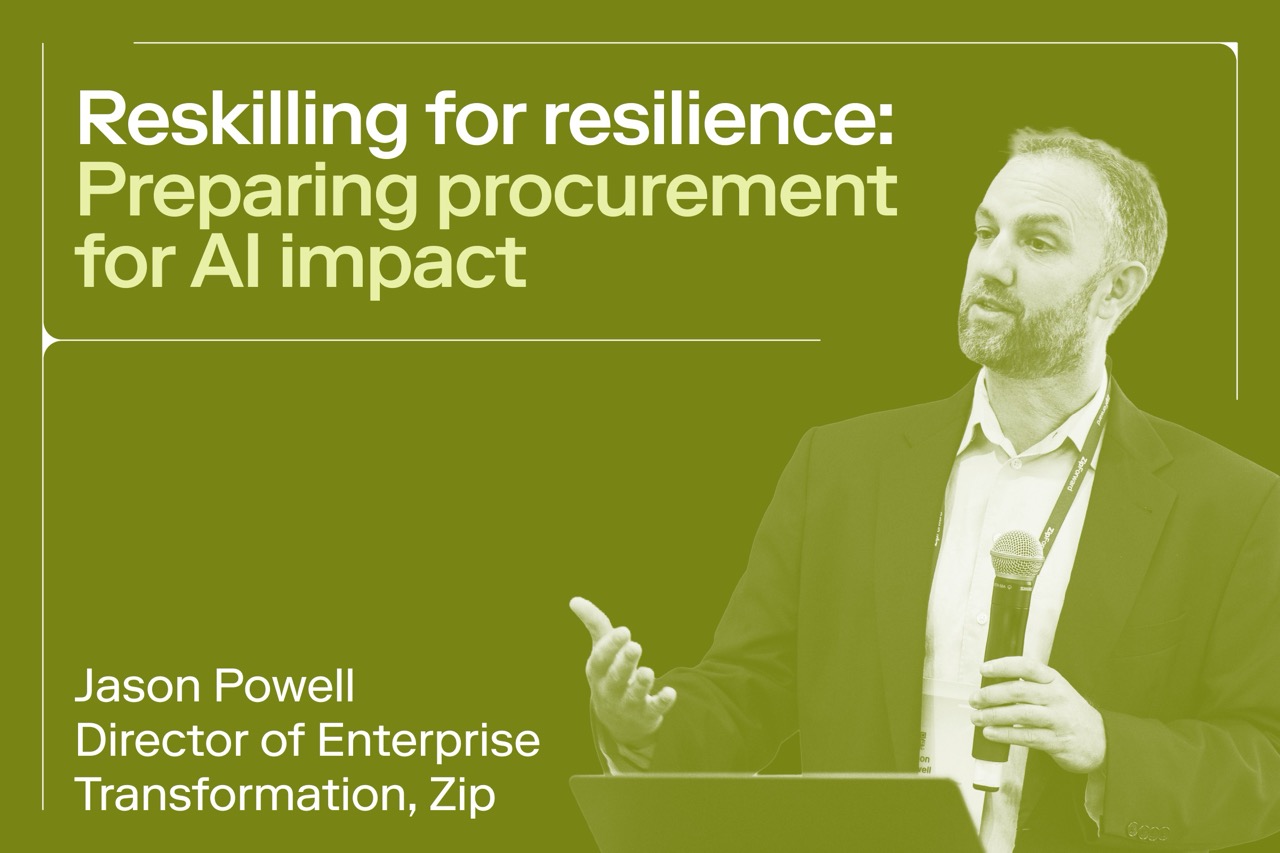
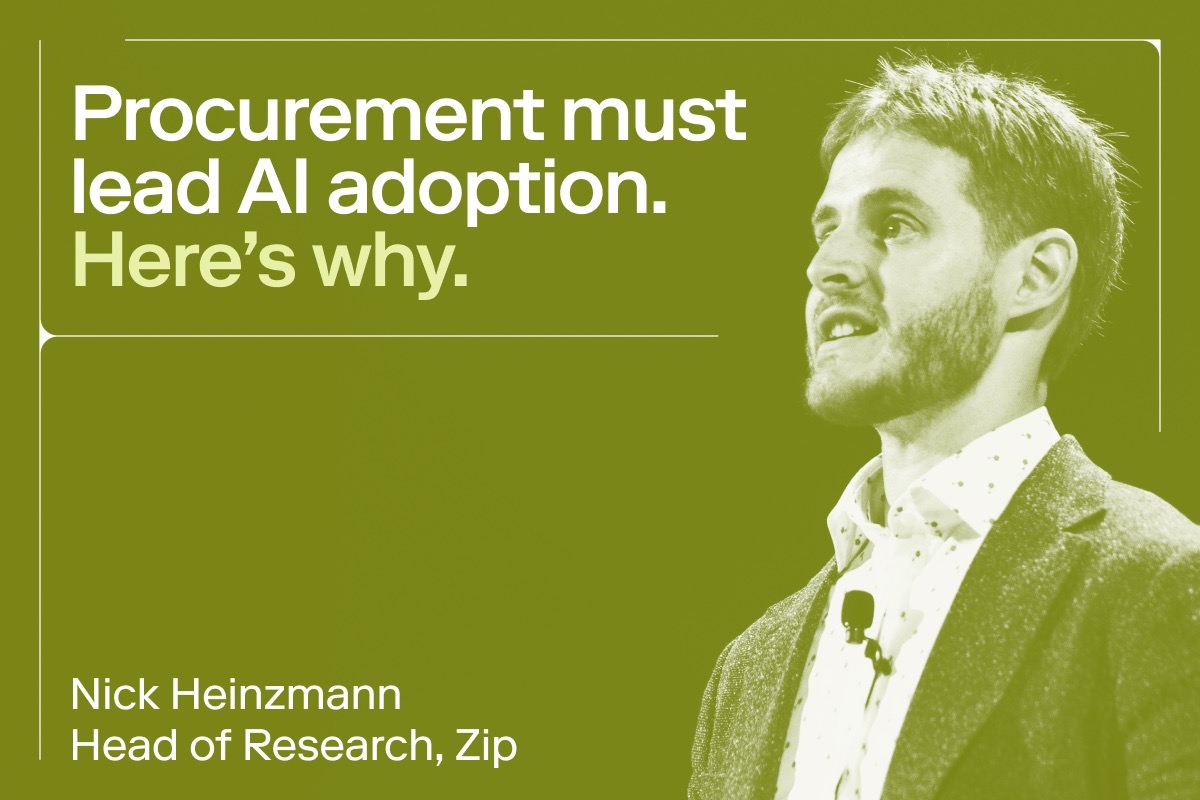









%20Large.jpeg)





.webp)


















